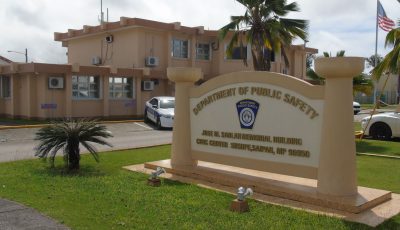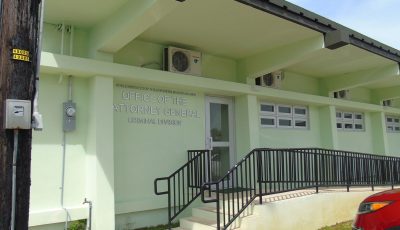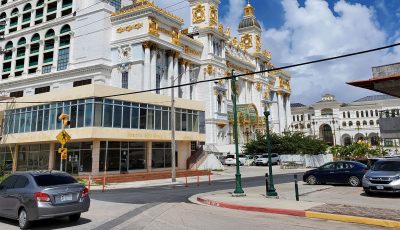OAG opposes couple’s request for order of payment in death of baby
The Office of the Attorney General is opposing a couple’s request for a court order directing the CNMI government to pay them the $35,000 settlement that was entered in July 2013 in their lawsuit over the death of their child during delivery at the Commonwealth Health Center.
Assistant attorney general David Lochabay asserted that the motion filed by Jotonia B. Aguon and Timothy Cruz is not supported by any authority and should be denied on that ground alone.
As counsel for the CNMI government and the Department of Public Health and Services, Lochabay filed yesterday the opposition to the couple’s motion for order in aid of judgment.
The motion will be heard by Associate Judge Joseph N. Camacho on Nov. 17, 2015, at 1:30pm.
If the court considers the plaintiffs’ bare assertions, Lochabay said the couple’s interpretation of the government’s budget would lead to patently absurd results.
The government lawyer also asserted that a CNMI Supreme Court previous ruling forbids courts from directly or indirectly ordering payment of judgments for which the Legislature has not appropriated funds.
In their motion, Aguon and Cruz, through counsel Michael Dotts, asked the court to direct the government to pay them the final judgment of $35,000 that was entered in July 2013.
According to Dotts, the government has not ever made even a partial payment despite agreeing to a settlement.
Dotts said then-assistant attorney general Joey P. San Nicolas, as counsel for the government, signed an agreement for an entry of $35,000 judgment against the Commonwealth on July 17, 2013.
Dotts said despite being alive in the womb, the child was later born dead. The lawyer alleged that the government was negligent in the staffing at CHC and that the doctor was negligent in failing to timely recognize fetal distress and failing to perform a C-section.
Dotts said the court has the power to aid Aguon and Cruz via the Appropriation and Budget Act of 2016, which vests the governor with “reprogramming authority within the Executive Branch.”
This authority, Dotts added, essentially means that the amount of the appropriation to the Executive Branch has also been appropriated to the payment of judgments.
In the government’s opposition, Lochabay said the plaintiffs’ motion contains five paragraphs, none longer than a few lines.
Lochabay said the plaintiffs made only one citation in a case in which the court held that a court could not direct the Legislature to appropriate funds to pay a judgment.
Lochabay said the plaintiffs cited the court ruling not in support of their claims, which it does not, but to inform the court of the current status of the law.
The government lawyer said an order of the court directing the governor to exercise his reprogramming authority for any purpose would likely be a violation of the separation of powers doctrine.
“The Legislature chose to give reprogramming authority to the governor, not the court,” he pointed out.
On budget issue, Lochabay said plaintiffs’ position that a balanced budget must provide for the payment of millions of dollars of unpaid judgments is just another of their bare assertions.
Lochabay said the plaintiffs simply make a bare assertion of what they think a balanced budget is, and leave it to the court and opposing counsel to supply substance to the assertion.



























